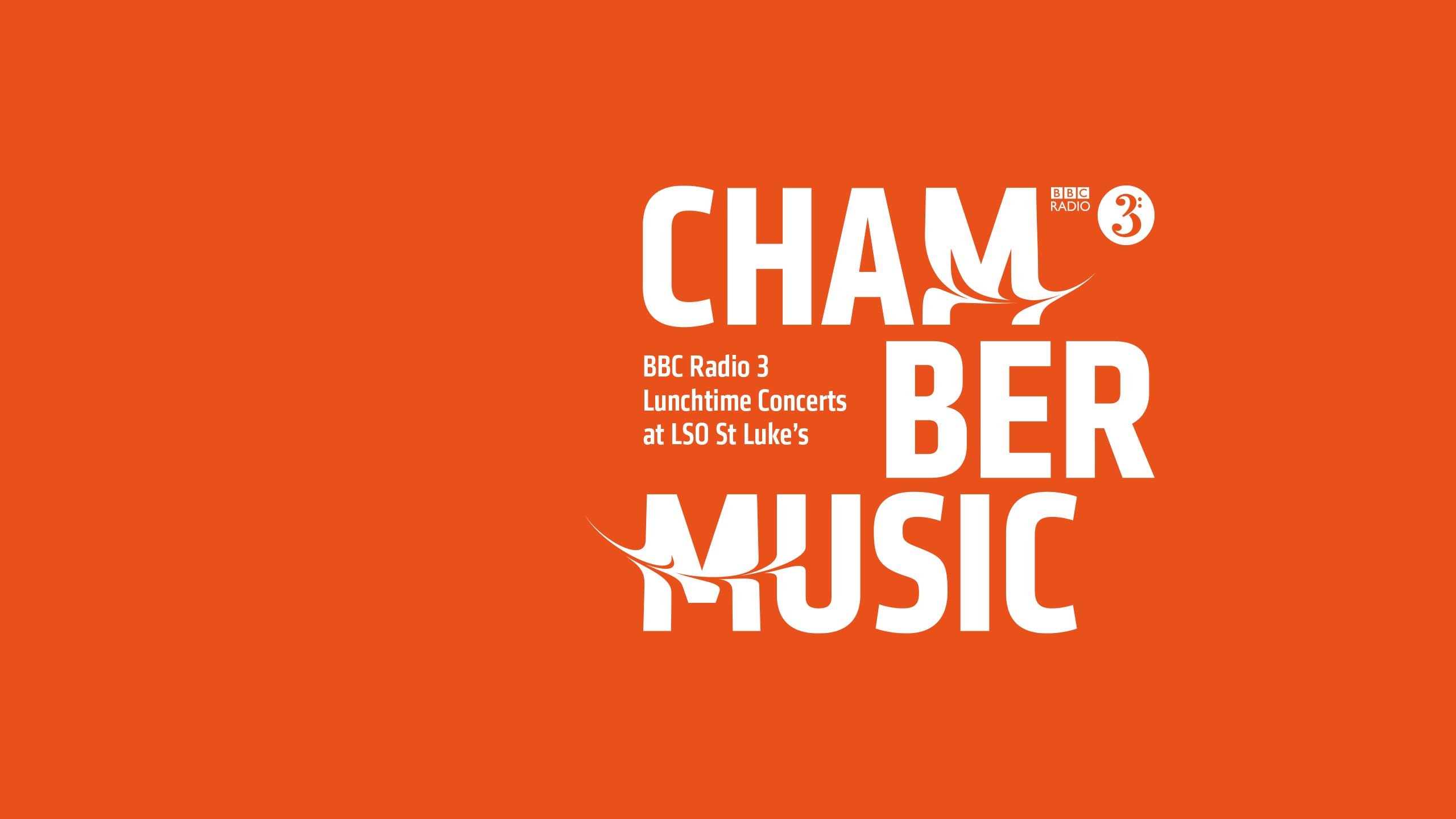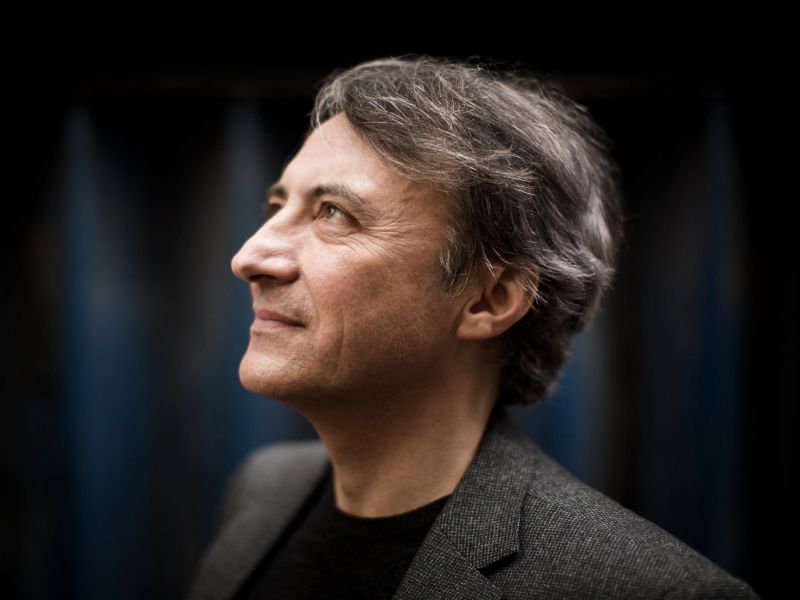
You can use your phone to view these notes during the concert. Use the menu icon (≡) in the top right of the screen to navigate.

Free WiFi
There is free WiFi available in the Jerwood Hall. Connect to the 'hawksmoor' network.
Please Note
Phones should be switched to silent mode. We ask that you use your phone only for reading the notes during the music. Photography and audio/video recording are not permitted during the performance.
BBC Radio 3 Concert
Haydn Plus: Jean-Efflam Bavouzet
Friday 17 September 2021, 1pm
In the first of four programmes exploring the achievement and influence of Joseph Haydn, Jean-Efflam Bavouzet plays works by composers who could all legitimately claim to be pioneers of keyboard technique and form.
Joseph Haydn Piano Sonata in A-flat major No 31
Muzio Clementi Piano Sonata in A major Op 50 No 1
Franz Liszt Grosses Konzertsolo (Concerto pathétique)
Jean-Efflam Bavouzet piano
Recorded for broadcast by BBC Radio 3

Support the LSO & LSO St Luke's
The importance of music and the arts has never been more apparent than in recent months, as we’ve been inspired, comforted and entertained throughout this unprecedented period.
As we emerge from the most challenging period of a generation, please consider supporting the LSO's Always Playing Appeal to sustain the Orchestra and our venue LSO St Luke's, assist our recovery from the pandemic and allow us to continue sharing our music with the broadest range of people possible.
Every donation will help to support the LSO’s future.
You can also donate now via text.
Text LSOAPPEAL 5, LSOAPPEAL 10 or LSOAPPEAL 20 to 70085 to donate £5, £10 or £20.
Texts cost £5, £10 or £20 plus one standard rate message and you’ll be opting in to hear more about our work and fundraising via telephone and SMS. If you’d like to give but do not wish to receive marketing communications, text LSOAPPEALNOINFO 5, 10 or 20 to 70085. UK numbers only.
Joseph Haydn
Piano Sonata in A-flat No 31 Hob XVI
✒️ 1767 to 1770 | ⏰28 minutes

1 Allegro moderato
2 Adagio
3 Finale: Presto
Joseph Haydn never aspired to be a keyboard virtuoso. He confessed that he was 'no wizard', and yet he was clearly a highly competent player – 'a living keyboard', as he described himself. Every morning he would begin his day by trying out new ideas on the harpsichord, or later on, the recently-invented fortepiano.
Just as he transformed the string quartet from a lightweight diversion into one of the central planks of the chamber music repertoire, so he took the largely amateur, domestic genre which was the early Classical keyboard sonata, and proceeded to mould it over a working lifetime into a serious medium capable of great emotional profundity and requiring a professional level of technical competence. His 60 or so keyboard sonatas, the earlier ones for harpsichord, the later ones exploiting the dynamic and tonal qualities of the fortepiano, encapsulate half a century of musical evolution passing through the hands of one pioneering genius.
This sonata in A-flat major belongs to a group of early works, composed in the later 1760s, which bore the alternative title of 'Divertimento', and were primarily intended for Haydn’s pupils, mostly wealthy young Viennese women.
The prevailing mood of this Sonata is graceful and lyrical. Each of its three movements is in a version of sonata form. The opening theme of the first, with its delicate ornamentation and expressive appoggiaturas, is typical of the fashionable 'sentimental' style popularised at the court of Frederick the Great. The almost improvisational development section wanders through several remote keys. The contrapuntal peregrinations of the eloquent central Adagio recall the work of J S Bach; while the lively finale concludes with a shower of scales over a rising bass line.
Muzio Clementi
Piano Sonata in A major Op 50 No 1
✒️ 1821 | ⏰21 minutes

1 Allegro maestoso e con sentimento
2 Adagio sostenuto e patetico
3 Allegro vivace
Muzio Clementi was one of the most influential pianists of his day. Born in Rome, his exceptional musical talent was spotted by a wealthy English nobleman on the Grand Tour, and he was taken to England aged 14 and raised in Dorset, where he spent eight hours a day practising the keyboard and studying. He later settled in London, from where he toured Europe (at one point engaging in a keyboard contest with his slightly younger contemporary Mozart at the Viennese court), and made a good living playing, teaching and conducting. He also ventured into music publishing, and later on became a highly successful piano manufacturer.
Known as 'the Father of the Piano', Clementi composed over 100 piano sonatas, much admired by Beethoven for their 'lovely, pleasing, original, fresh melodies'. These qualities are evident in Op 50 No 1, published in 1821 as the first of a final set of three sonatas. The expressive, sentimental style cultivated 50 years earlier by Haydn dominates the opening Allegro maestoso, while the central Adagio sostenuto encloses a two-voiced canon at its core. The sparkling Finale explores the upper reaches of the newly expanded keyboard.
Franz Liszt
Grosses Konzertsolo (Concerto pathétique)
✒️ 1851 | ⏰22 minutes

1 Allegro energico
2 Allegro agitato assai
3 Andante, quasi marcia funebre
4 Allegro con bravura
Clementi’s piano sonatas were held in high regard by Beethoven’s best-known pupil, Carl Czerny, an influential teacher in his own right. He used them to instruct his own most famous pupil, Franz Liszt, who became Europe’s foremost piano virtuoso. Liszt’s success was such that by his mid-30s he was able to retire from the concert platform to devote himself both to conducting and composition, in which he proved a pioneer of experimental musical form.
His Grosses Konzertsolo – a large-scale, virtuosic piece for solo piano in the style of a single-movement concerto, was published in 1851. Liszt tinkered with it for years, recasting it for two pianos, and evidently considering a full-scale version with orchestra. He originally conceived the piece as a huge three-part sonata-allegro movement, but then inserted a slow middle section, marked Andante sostenuto. The principle of thematic transformation, which Liszt later used so successfully in the B minor Sonata, binds the four sections together.
Notes by Wendy Thompson
Artist Biographies

Jean-Efflam Bavouzet
piano

Award-winning pianist Jean-Efflam Bavouzet enjoys a prolific recording and international concert career. He regularly works with orchestras such as The Cleveland Orchestra, San Francisco Symphony, BBC Symphony and Tokyo Metropolitan Symphony orchestras, and collaborates with conductors including Vladimir Jurowski, Gianandrea Noseda, François-Xavier Roth, Yan Pascal Tortelier, Vasily Petrenko, Ludovic Morlot, Edward Gardner and Sir Andrew Davis among others.
Highlights of the 2021/22 season include Orchestre de Chambre de Paris, Orchestre National de Lyon, concertos with Orchestre Philharmonique de Strasbourg and in recital as part of the Printemps des Arts de Monte Carlo, Royal Liverpool Philharmonic, Stavanger Symphony, Orchestra Haydn Bolzano and Polish National Radio Symphony orchestras. He continues his relationship with Manchester Camerata. In recital, Bavouzet commences his Debussy focused residency at Wigmore Hall including solo recitals and chamber concerts with the Danel Quartet and Dmitri Shishkin and he performs at the Nights of Sviatoslav Richter Festival in the Pushkin State Museum of Fine Arts in Moscow. He also returns to Festival International de Piano La Roque-d’Anthéron and LSO St Luke’s in London for BBC Radio 3 amongst others.
Bavouzet’s previous performances include New York’s Lincoln Center and Carnegie Hall with the London Philharmonic Orchestra, the Philharmonie de Paris with Orchestre Philharmonique de Monte-Carlo, and BBC Proms with the BBC Philharmonic Orchestra and Nicholas Collon. He has recently appeared with the Budapest Festival Orchestra, Seattle and Toronto Symphonies, play/direct with Camerata RCO, Gürzenich-Orchester Köln, Royal Scottish National Orchestra and toured the UK with the Iceland Symphony under Yan Pascal Tortelier.

Thank You for Joining Us
We hope you enjoyed the concert. Keep scrolling to find out what's coming up next at LSO St Luke's.
Forthcoming BBC Radio 3 Concert
Haydn Plus: Trio Karenine
Friday 1 October 1pm
Joseph Haydn Piano Trio in A major, Hob 15/9
Franz Schubert Notturno
Erich Wolfgang Korngold Piano Trio in D major
Trio Karenine

Follow us on Instagram, Facebook and Twitter.
Programme Contributor
Wendy Thompson studied at the Royal College of Music, before taking an MMus in musicology at King’s College, London. In addition to writing about music she is Executive Director of Classic Arts Productions, a major supplier of independent programmes to BBC Radio.

